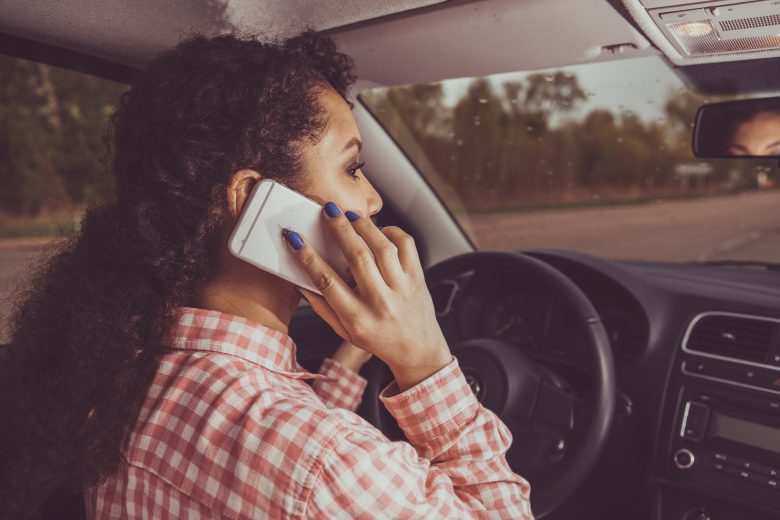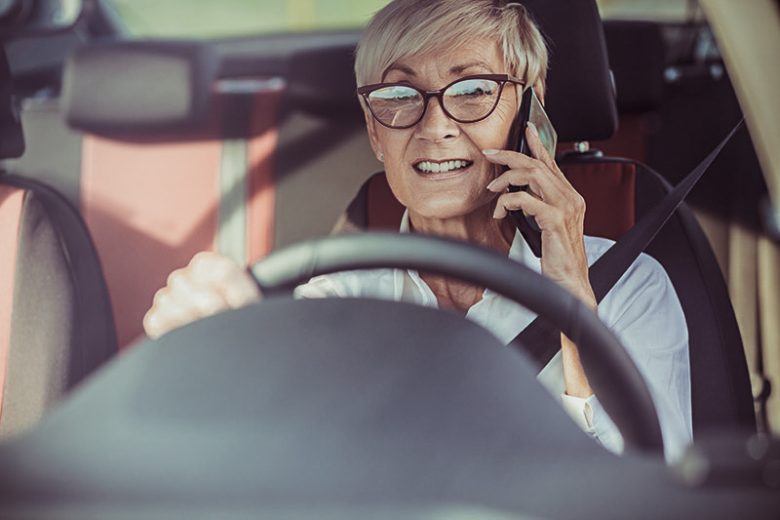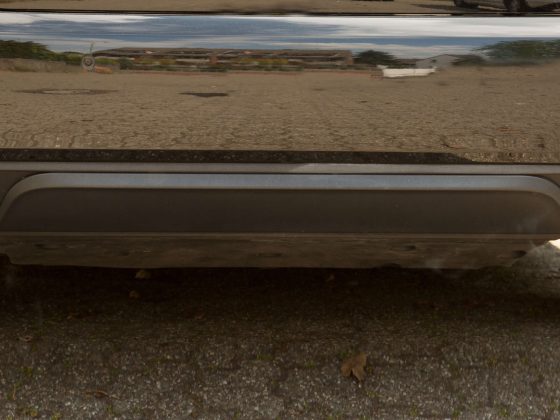Cars have been around since 1886, evolving along with our perception of reliable, personalized transportation. This evolution has been progressing at a fast rate thanks to major investment in car technology.
Use eTags© to Quickly Complete Your DMV Service. Renewals, Title Transfers and More, All Online!
Today, drivers can access many car tech features and concepts that keep adding up to the increasing importance of car ownership and mobility.
From blind spot detection to 360 degree cameras, automakers are investing on safety features that can reduce alarming crash rates that not only occurs in the U.S. but globally.
However, there are other car tech features that are impacting, if not reducing, our concentration while on the road.
In a recent investigation, the AAA Foundation for Traffic Safety reported that taking your eyes off the road for 2 seconds can more than double our risk of getting involved in a car crash.
While safety campaigns alert us against distracted driving, would it be smart to slow down with our interest in car tech and start tackling distracted driving, or is possible to create a balance?
Pairing smart devices with cars
Using your smartphone is one of the most common source of distraction while on the road, regardless of how these devices can help you handle certain tasks.
By addressing safety, automakers have made possible seamless integration of mobile devices with vehicles to counterattack distraction.
Modern cars are equipped with voice-activated phone integration and, in some cases, drivers can access voice-activated navigation and music control features.
These car tech features may keep your hands on the steering wheel, but that doesn’t mean you’ll be driving distraction-free.
Even when you pair your phone with your car and then use your voice to access different features, you are still exposed to the effects of distraction.
Focusing on your car features while driving reduces your reaction time, which ultimately leads to a crash.
You are still not discouraged to pair your smartphone with your vehicle for a modern user experience, but keep in mind that this technology does not eliminate the risk of getting distracted while on the road.
In other words, you should avoid using the smart device integration feature in your vehicle for your own protection.
What are the types of driver distraction?

Distracted driving is habit that is taking over the roads and it doesn’t matter what you do to reduce the impact of your distraction – such as using hands-free devices – you are still facing distraction.
Find below three types of distraction:
- Manual: When you take your hands off the steering wheel to do something else but focusing on your driving.
- Visual: When you are looking somewhere else but the road.
- Cognitive: When your mind is disconnected from the road.
Note that if you reach your phone to answer a text, you will be experiencing those 3 types of distraction.
As previously mentioned above, using hands-free devices does not eliminate any risk of distraction while on the road, so be careful!
Even when you tell your car to make an important call, you will be experiencing cognitive distraction as your mind will be focusing on the call instead of the road.
As for texting and driving, 1 out of 4 accidents are caused by drivers who were reading or replying to a text.
Field experts say that you are 6 times more likely to experience a crash while texting and driving than you are while drunk driving.
Again, taking your eyes away from the road doubles the risk of getting involved in a car crash, whereas replying to a text takes about 5 seconds.
If you have a teen driver at home, make sure they put their phone down as adolescents are more likely to be involved in a car crash than adults.
Statistically, of all teens who were involved in a car crash, 21% admitted to be distracted by their phones.
Self-driving cars may not be enough to tackle distraction
While self-driving vehicles are becoming increasingly popular with many automakers and high-tech companies investing on prototypes, this technology won’t be able to combat distracted driving issues unless cars become fully-autonomous.
Companies including Uber and Tesla may be impressing us with their latest autonomous systems and pilot testings but there are still operational errors that are building up walls against innovative concepts.
To respond to the distracted driving problem, companies need to reach a level 4 or 5 autonomy so as to drive safely without any sort of human intervention and tackle any margin of error.
So, what can we do to combat distracted driving?
Regardless of the current need to tackle distracted driving, there is still something we can do to keep everyone focused on the road.
You can plug your phone to your car to notify your wireless provider you are driving. This features blocks all calls, messages, and notifications, as well as prevents you from using your phone while on the road.
Similarly, any person who tries to contact you will receive a message explaining that you are driving, which helps you stay focused.
There are also other apps that help parents keep their teen drivers from handling their phone while driving.
Many of these apps connect to the device’s GPS and follows a safe mode which automatically blocks any texting features once the vehicle starts speeding.
Others simply stop any sort of interaction until the setting is turned off. You won’t be able to access phone texts and calls unless you switch them off, either manually or remotely.
The safest solution, though, is to shut your phone, put it in airplane mode, and put it down until you reach your destination.
In practice, no text nor call is important enough for you to jeopardize your own safety.
Perhaps the more access drivers have to modern car technology, the more distracted they will be while on the road. Yet, technology also comes with features that makes our driving a little safer to say the least.
As phone-blocking technologies do not tackle certain sources of distraction including accidents on the side of the road, in-car climate control, and radio station set ups, it can help us tackle other tech-based distraction that are currently putting our safety at risk.
SEE ALSO: Want To Renew Your Florida Tag Online? Now You Can!








